The climate crisis makes optimism difficult, but there is hope in the fact that discussion is still possible. Pacific island states actively call for action.
Rohinton Medhora chaired the panel discussion held on March 14, 2024, the goal of which was to explore ways in which international cooperation can be accomplished. In her keynote speech, President Hilda Cathy Heine of the Republic of the Marshall Islands called for a stronger response to the climate crisis, and Medhora began the discussion by asking President Heine to re-evaluate COP28 from her perspective as a leader of a fragile state.
"There was some progress," she responded. "Especially with the creation of the Loss and Damage Fund. I would say that's a good sign. There is movement toward support for small island countries, especially this year, as we are facing a lot of inundation on our island. We have to come up with our own funds to restore our communities. The Loss and Damage Fund would really assist us in moving forward."
However, President Heine lamented the fact that the fund is still not fully capitalized, and that it seems to take longer each year "for anything to get accomplished."
Private sector should put pressure on their governments, and make their leaders take on the responsibility of building a better future
Medhora turned to Stefan Lofven (Former Prime Minister of Sweden, Co-Chair of the UN High-Level Advisory Board on Effective Multilateralism, and Chair of the Governing Board of the Stockholm International Peace Research Institute.) In his work as Co-Chair of the High-Level Advisory Board, he was involved with the production of a report titled, A Breakthrough for People and Planet: Effective and Inclusive Global Governance for Today and the Future, and Medhora asked Lofven how this will develop in the future. Lofven explained that the report was a part of the preparation for the Summit of the Future to be held this coming September.
"The Summit of the Future is supposed to make a decision on a pact for the future," he explained. "It's a very important summit; it's a very important decision. I think I can see an awareness, for example, for changing the global financial architecture. That discussion is already ongoing, and we can already see some results."
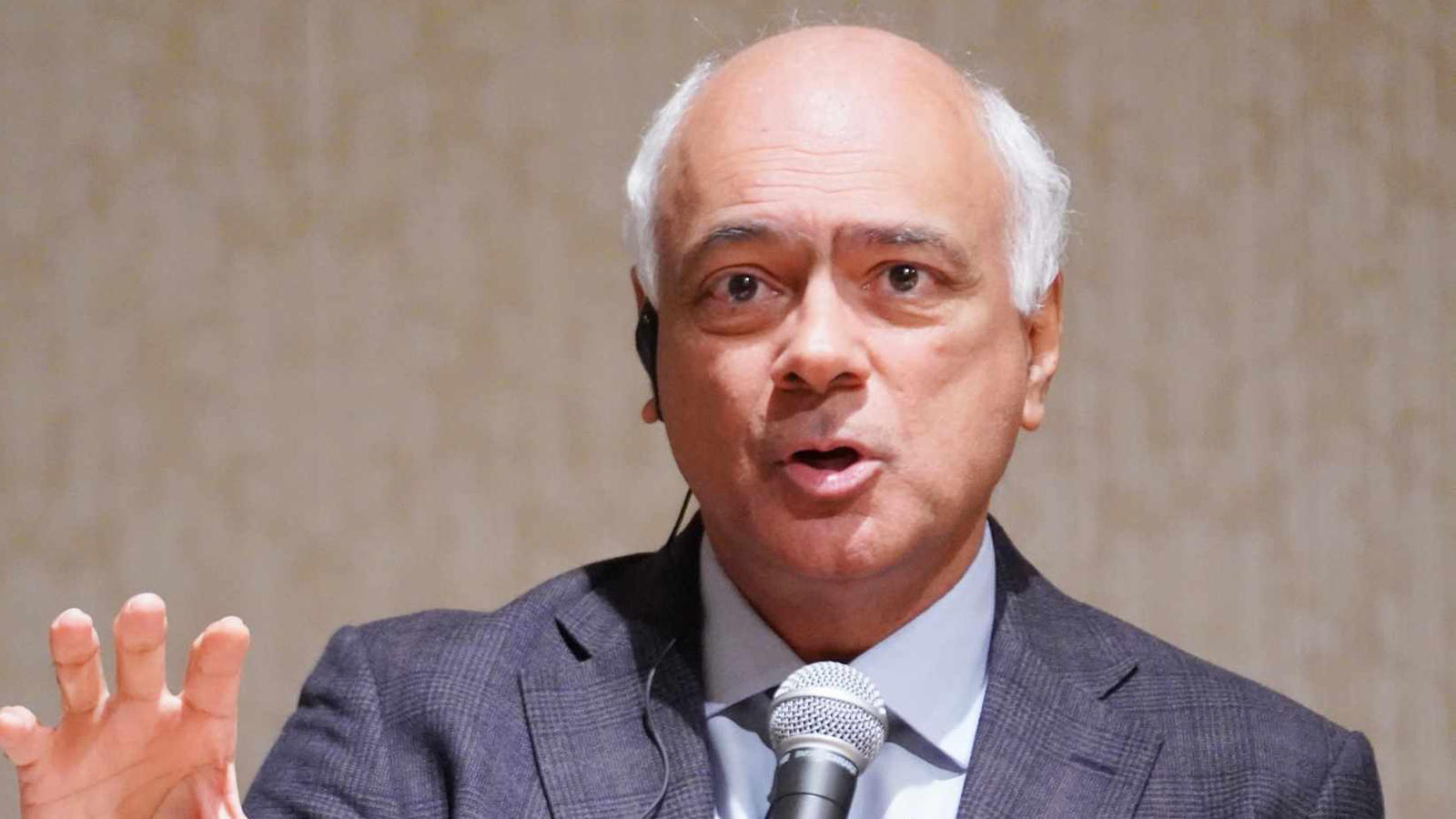
Lofven expressed his agreement with Heine's remarks about funds when he said, "We tend to create funds, but we don't capitalize them. We should remember that in 2009 the developed world promised the developing world that we would contribute some 100 billion dollars and we haven't fulfilled that yet. It's a shame because we have the resources and we should do more."
However, he remains positive that private actors can still have an impact, because "There is an awareness that if we do too little, it'll be a catastrophe for all of us. It is important for civil society, for the private sector, for all engaged to push on their leaders, on their governments, and say we want you to take very bold decisions in September."
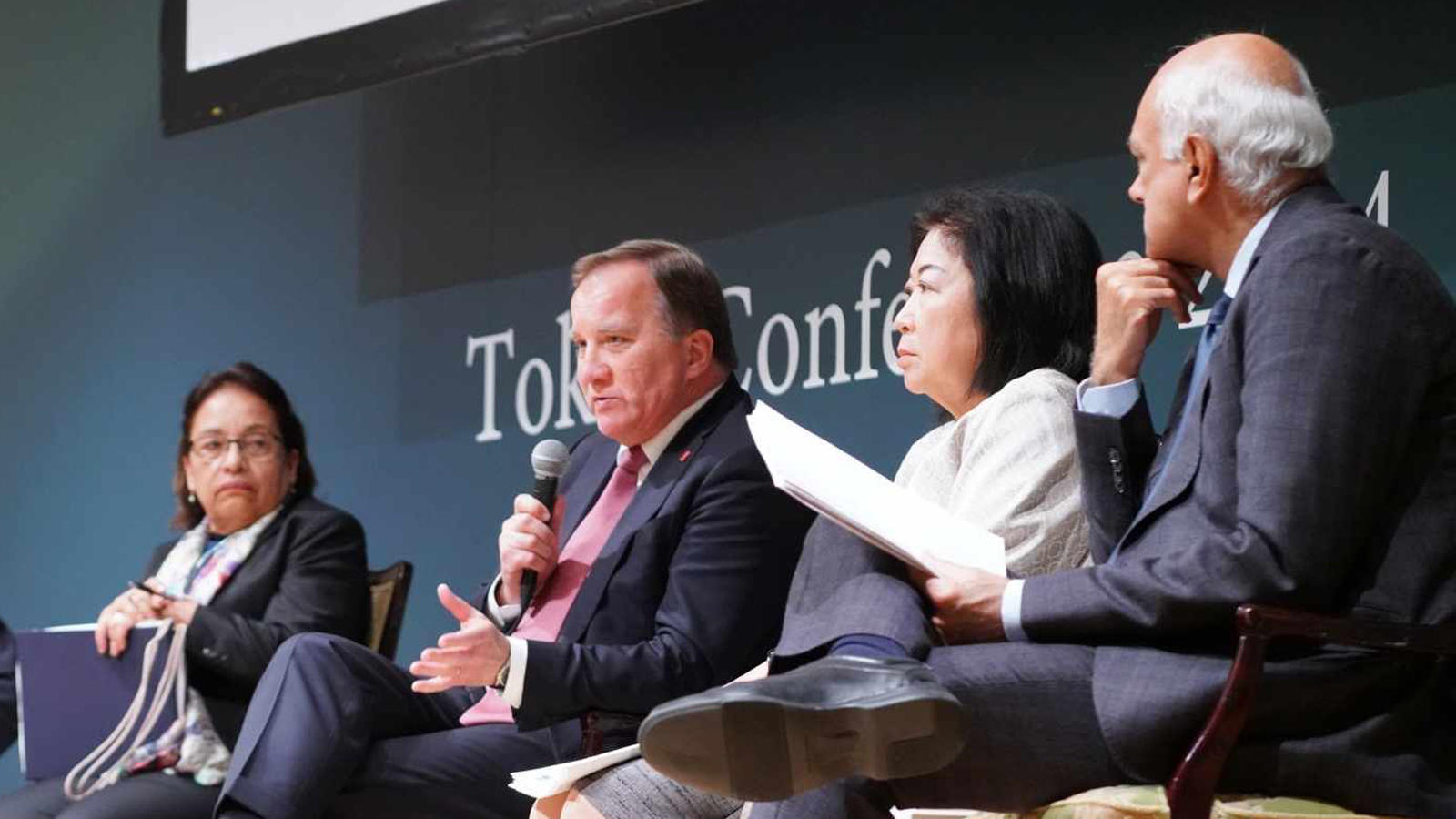
Aim for Open Regionalism like that offered by CPTPP
Next, Medhora asked Mari Elka Pangestu (Former World Bank Managing Director of Development Policy and Partnerships and Indonesia's former Minister of Trade) to talk about how taking the "middle road" might work by expanding on ideas she covered in her keynote speech, including the concept of "constructive incrementalism" and having other countries "fill the gap left by the two large powers."
In her keynote, Pangestu explained that middle powers should be working together as they will be able to move the discussion forward in a more thorough, plurilateral way "in the absence of international cooperation and multilateralism, and the fact that you are going to have more regional value chains."
She warned the panel that there is an "intermix between security, economics, and technology. That's the reality of the world. We have national security agencies determining security concerns using economic instruments. And then economists are still trying to have this global order, free-trade mindset. They don't meet. Is this the cost of economic security greater fragmentation?"
Pangestu also discussed how organizations like the WTO require no explanation when a country uses the security clause when it violates trade rules, so there needs to be a way to quantify the concept of security.
"Short of codification, create a platform where countries at least have to explain why they are using this instrument for security purposes. You can bring it down to the regional level," she said, suggesting that CPTPP, RCEP, and other partnerships should step in and grapple with the idea of how to define when "security" can be used to implement trade exemptions.
Dispute settlement was the other issue Pangestu touched upon since it is particularly helpful for developing countries. But with the demise of the WTO Appellate Body at the end of 2019, she pointed out that there is a need for a new dispute resolution system that can be used to prevent unfair trade, and recommended a parallel process called the Multi-Party Interim Appeal Arbitration Arrangement (MPIA).
Finally, Pangestu raised the idea of "open regionalism."
"It seems like an oxymoron," she admitted. "Regionalism is by definition preferential. But you want to make it open by allowing members to join so that you expand it. I think CPTPP is up to the challenge of adding new members."
Later on in the discussion, Pangestu expressed her hopes for Track 2 efforts because they allow for dialogue and the mutual sharing of narratives that can be effective in finding solutions in various areas.
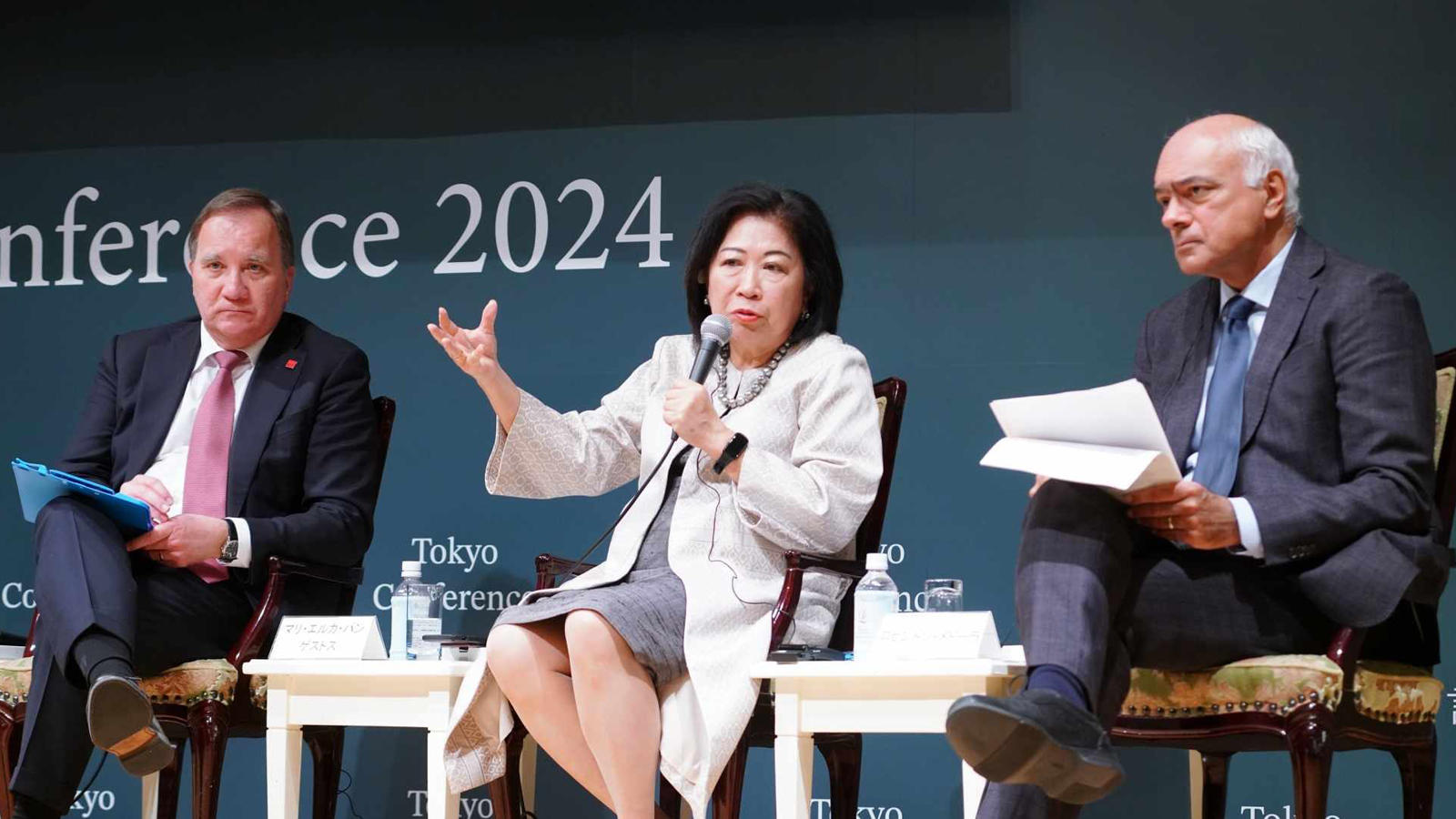
Africa needs a new form of multilateralism that is more inclusive and more vigorous
Medhora looked to Josefa Leonel Sacko (African Union Commissioner for Agriculture, Rural Development, Blue Economy, and Sustainable Environment) for an African perspective of the issues being discussed.
"All 55 countries (in Africa) are members are members of the African Union. The African Union is a model of multilateral cooperation," Sacko explained, and noted that the AU appreciated being made a permanent member of the G20 during the summit held last September in India.
"It will give us more strength to solve our own agenda, and to participate in what we have identified here, like energy, climate change, and food security. We are a government of our continent, so whatever we do, whatever program we have, it is easier for us to be there and discuss and present our own ideas. Nobody is talking for us; we are talking for ourselves."
However, Sacko emphasized the importance of regions working together rather than internally.
"This is a very important conversation we are having here: how to invigorate multilateral cooperation," she continued. "We cannot work alone, isolated, as a region. We have to work together because of these agendas."
Finally, Sacko expressed her positive outlook regarding issues connected to climate change.
"I also commend the UN for the additions made to COP," she said. "We are making a lot of progress. It allows us to sit and discuss pertinent issues to come up with a solution so that we can advance."
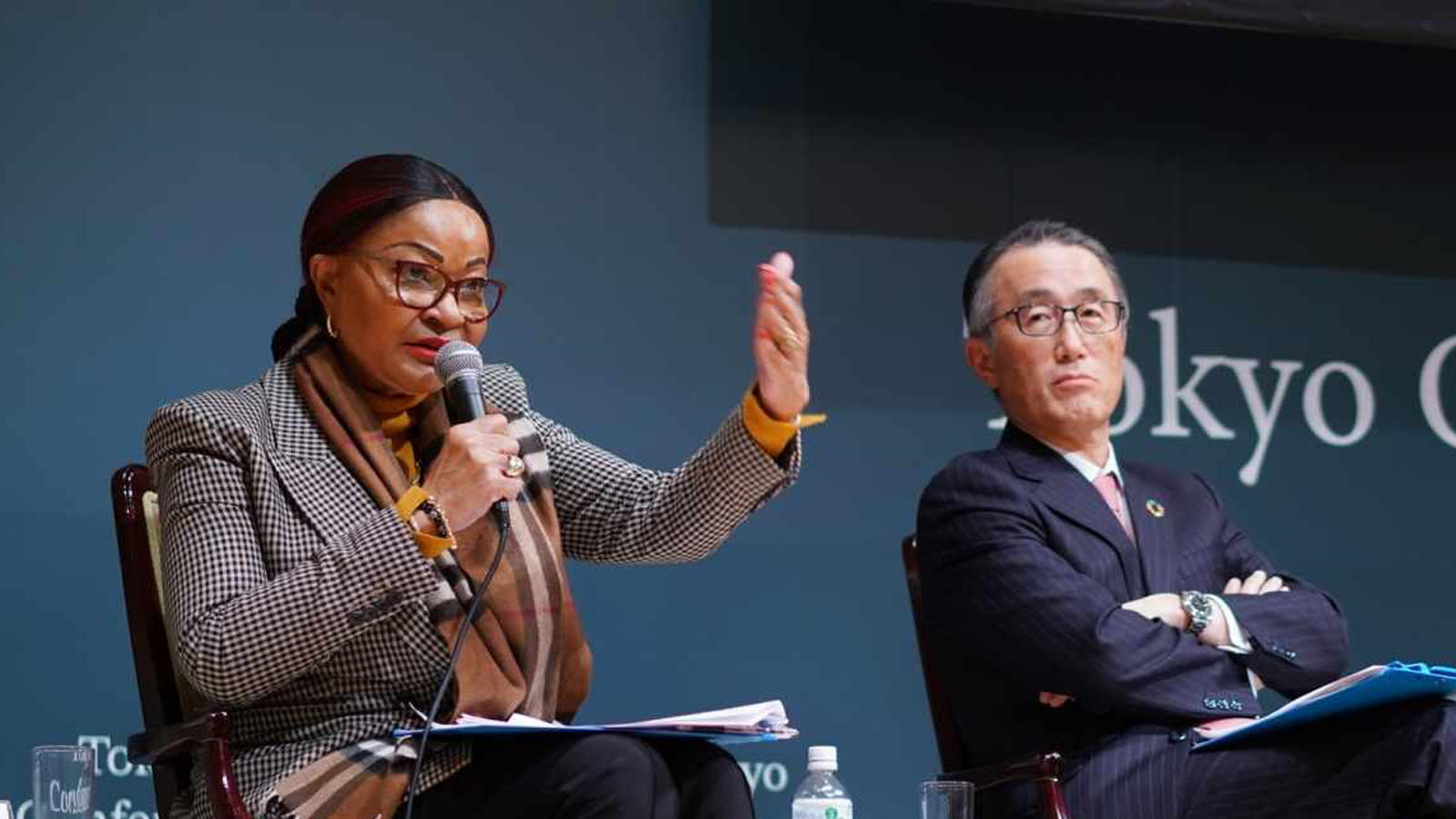
With its intermediary position between Asia, Europe, and the US, Japan can play a large role in finding solutions tailored to each region
Kanetsugu Mike (Chairman of Mitsubishi UFJ Financial Group, Inc.) next spoke about the role that Japan can play in restoring international cooperation.
"G7 is the only member of the G7 from Asia. It upholds international law, and has the standing to play a leading role in shaping global public opinion. It's economically and cultural close to Asia...and can take an inclusive approach," he said. Mike noted how recently Prime Minister Fumio Kishida has focused on the "rule of law" rather than democracy or human rights as a means of finding human values that all countries can have a stake in.
"That means he focused on the core values that can be broadly shared and at the same time allow an inclusive approach. There are many areas where such an approach can be adopted," he said. "Many people today have discussed climate change. That is a very challenging theme. We need international cooperation, but in reality, not all stakeholders are necessarily exactly on the same page. While the net-zero goal requires a standardized and harmonized approach, we need to allow options in transitioning that take into account the specific characteristics of each region."
Mike explained the importance of Asia because it produces 50% of global carbon dioxide emissions, but explained why it would be difficult to implement Western approaches in Asia.
"One, Europe and the United States have already peaked in energy demand. The demand for energy in Asia is still growing along with the population and economies. Two, the source of emissions is different. In Europe and the United States, emissions mainly come from automobiles so transitioning to electric vehicles will reduce emissions. In Asia, emissions come from power generation. A different approach is necessary. The average age of a coal-fired power plant in Asia is 11 years, while in Europe it's 34 years and 41 years in the United States. The cost of early de-commissioning is totally different."
"Japan and other Asian countries have to work together to formulate rules and a framework that allows for an inclusive approach that would effectively make the world greener," he said.
Medhora changed tack when he asked Heine how smaller countries like hers can make their voices heard in a world of larger states.
"The small island states have the Pacific Island Forum (PIF), an organization of 18 countries in the Pacific. We are also members of the Alliance of Small Island States (AOSIS), which includes the Caribbean, the Pacific, and Indian Ocean countries. We are also members of the United Nations, so we bring our issues to larger forums through our UN membership," Heine explained. "It's through these international and regional organizations that we voice our issues and concerns. I don't know if we are that effective, but we'd like to think we are taking leadership. We need to take leadership on issues, especially climate change, because if we don't take leadership on that issue, who will? We cannot leave it to others to determine our future. We have to determine our future ourselves."
Sacko added to this by explaining the current progress of economic integration in Africa, pointing to the successful development of the African Continental Free Trade Area (AfCFTA), which officially began operating in 2021, and to other ideas being promoted and researched in the region, from a common currency that spans the continent, a common passport, and a central bank of Africa operated by Africans.
What should be done now to protect future generations?
Medhora had another question for Mike about how to reduce division in the world.
"Wars distract us from other pressing problems. They create insecurity and anger, and that leads to more division and therefore more conflict. And that conflict often leads to almost inter-generational scarring," he said, addressing Mike. "It's not just that you can solve a war today and expect no echoes from it. There's almost a social PTSD that we have to deal with. I'm wondering what we can do about that?"
"At the end, it comes down to education," Mike answered. "I believe that conflict divisions often come from income inequality, and income inequality is caused by disparities in education."
Mike believes that educational inclusion is a place where an effort must be made. This is somewhere that Japan could play a role.
"One idea is to open Japan's primary and secondary education to developing countries where education is not necessarily inclusive," he said, noting that Japan's education system has a good reputation for cultivating basic academic skills. He offered one more idea.
"Developed countries and developing countries can work together to enhance international exchange programs. That could foster a sense of trust and understanding among younger generations who will decide and re-imagine our future."
Medhora wrapped up the discussion with one final question to the panel as a whole, "What would you like us to be doing today to make the world better for future generations?"
Lofven agreed with the necessity of improving education, and offered another possible more urgent solution.
"What we should do starting now is to change the global financial architecture so that we can start investing now," Lofven said. "Deal with the debt problem fast, make sure that countries with high debt can start developing. You can do that in combination with incentives for climate transition. Then make sure that we have enough resources for the investments we need to do: for education, for safe water, all the other things we need. 700 million people lack electricity. If don't give these people the chance to keep up with development, the gaps will widen. That's a threat to our world. Make sure the global financial architecture works for all. That would be the primary task," he said.
Pangestu pointed to climate as the most important action to take now, and Sacko agreed.
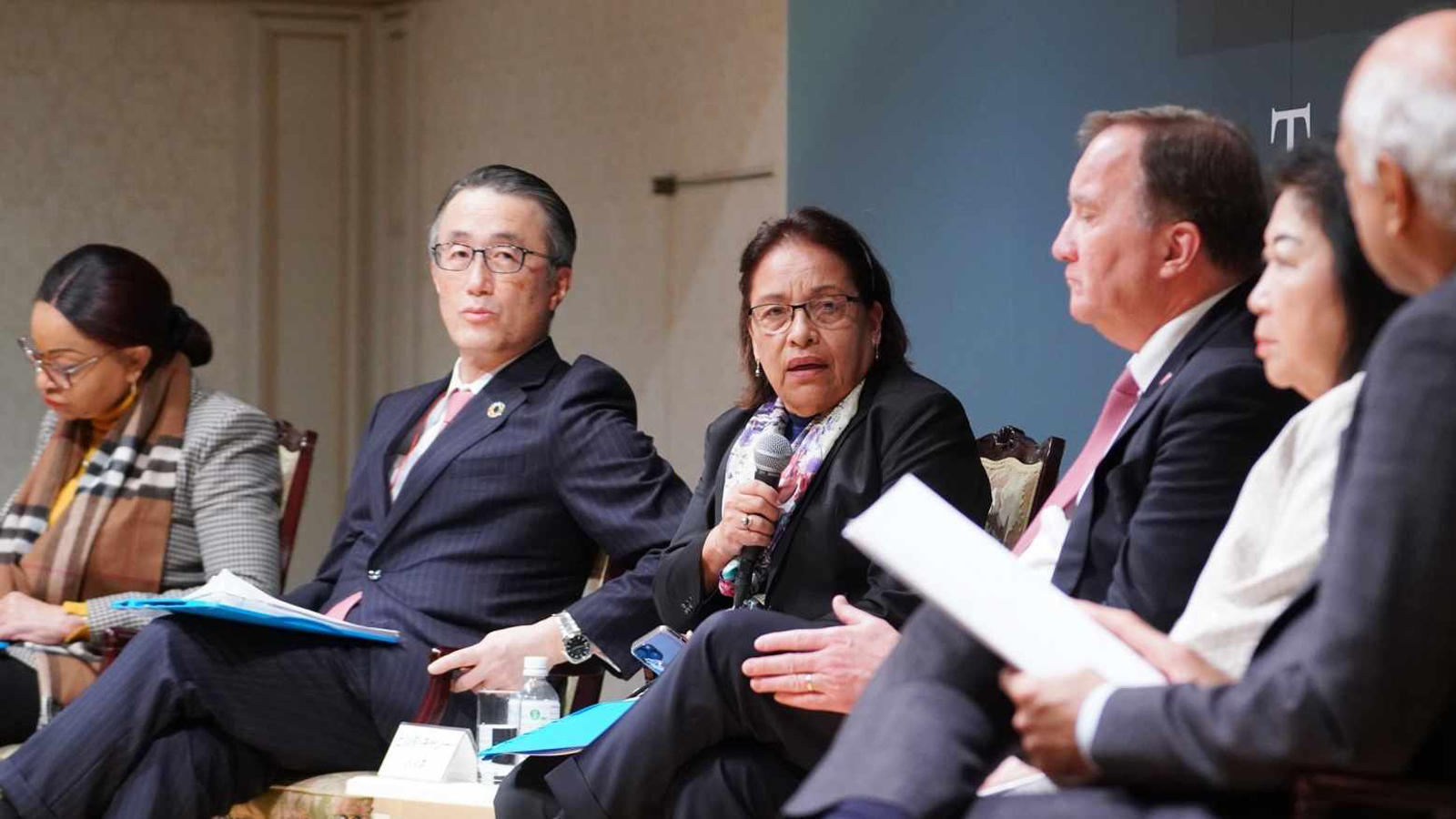
"Climate change is really a threat for development," Sacko began. "I would like to call upon our partners to honor their pledge. The world is sick. We heard in Dubai that the Loss and Damage Fund was ready to be operationalized, but that was in December. In three months, we have gotten no feedback...Since we are in this multilateral conversation, I would like to appeal to people to be more sensitive to what is happening (in Africa). We don't pollute. We put out less than 4% of (CO2) emissions. But we want to join you in this journey so that we can have a better home, and a better planet."
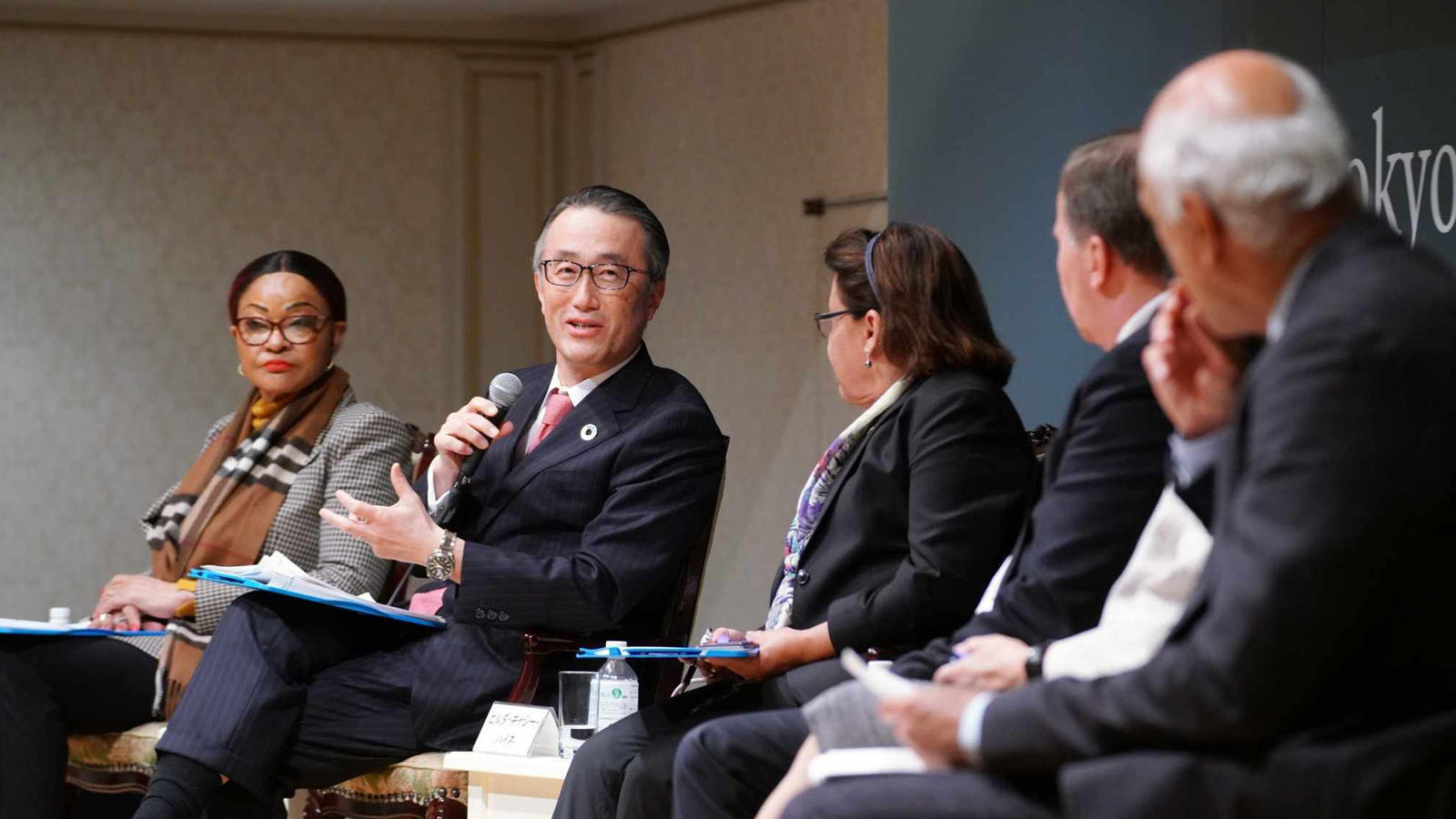
Post a comment